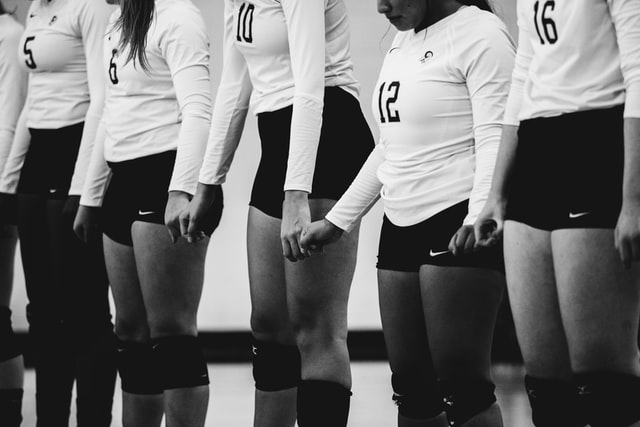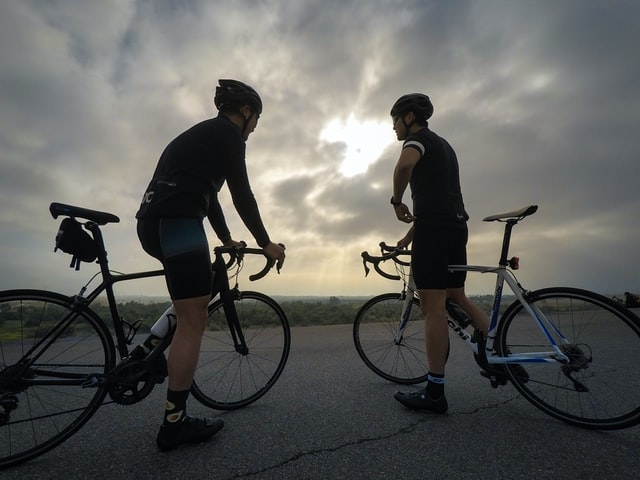PLAYBOOK DEVOTIONAL
Athlete, Dribble Backwards
Jason Cooper
Galatians 1:17-18 (NIV)
I did not go up to Jerusalem to see those who were apostles before I was, but I went into Arabia. Later I returned to Damascus. Then after three years, I went up to Jerusalem to get acquainted with Cephas and stayed with him fifteen days.
When I was a freshman in college, Coach Jackson took me aside and said, “Jason, you have to unlearn that. You can’t just dribble right through the double team with your head down in college like you could in high school. You have to look up and dribble backwards out of it.”
Then he demonstrated the footwork as he pounded the ball into the hardwood and moved backward with surprising precision.
You’ve probably had to make adjustments in college. Maybe, your outside hits are now dug in volleyball, your receivers are now covered in football, or your defenders are quicker in soccer.
What you were doing used to work, but it’s different at the college level. You have to unlearn old habits as you learn new ones.
After Paul was blinded, he had to adapt to the college level. He couldn’t just learn on top of what he already knew. His transition included unlearning.
It’s interesting to imagine what those three years were like for Paul. Picture him at a desk, unthinking and rethinking God and His kingdom, as he shuffled and erased images and ideas in his head.
It had to be agonizing at times, as Paul’s understanding of God and His kingdom crashed and had to be rebuilt.
There were times Paul probably threw up his hands and echoed his first question when he saw the bright light, Who are you Lord? Because I don’t know!
It took three years for Paul to emerge to a more public setting. That just shows how long the process takes.
Student athlete, it’s hard to unlearn what you learned in high school sports, because you were so good at learning it the first time. Together, your mind and body remember what to do. But now you have to retrain those neuromuscular pathways.
It can be the same with Christianity.
Since God desires to be known, it seems like He refuses us contentment when it comes to our knowledge of Him and His kingdom, like He did with Saul.
It seems like God simply won’t be put down – and by put down I mean sat down and figured out like a puzzle, then walked away from.
Thank God that He’s into the process of correcting misnomers and patiently reteaching us, because we don’t know it all.
But I wonder if we are into that process as much as God is.
We post-Enlightenment Westerners prize answers and explanations. We like categories and efficiency. We like things to be linear and logical.
We like to be on top of things. We value having arrived. We like done deals.
Perhaps, one of our weaknesses is to undervalue processes, because they seem inefficient. They mean we aren’t certain. We think they mean we’re weak or soft.
Undergoing a process seems to imply that we haven’t arrived – and isn’t that a threat to where we thought we stood?
Student athlete, God is concerned about us getting Him and His kingdom right. If where we stood is not where we need to stand, we need to move.
And God allows space for that — for us to fumble, adapt, and learn — because our faith is fluid, not stagnant. It’s an unfolding wonder, not a fixed mode of flawless monotony.
This doesn’t mean there aren’t constants and non-negotiables in Christianity. There are old standbys that don’t vary. But at the same time, being Christian doesn’t mean we know it all and can just dribble with our heads down.
Like Saul, we sometimes need to move backwards to move forwards, because digging deeper into what we already know isn’t always the same as growth. We can recant, and to get it right, sometimes we must.
God has a long history of raising up those He agitates, like He did with Paul. Are you willing to be thrust into the uncomfortable place of not knowing Him and His kingdom to find out about them?



